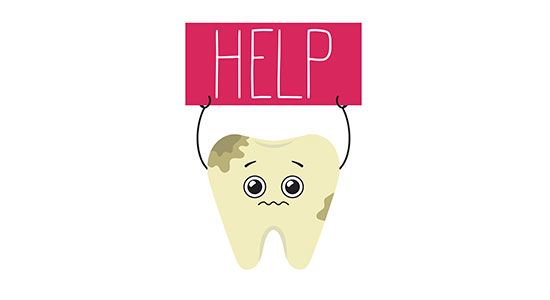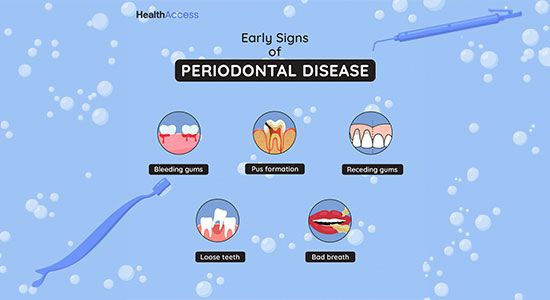The Hidden Dangers of Cavities: More Than Just Tooth Pain
Fact checked
By Azrung Fayaz, Doctor of Internal Medicine | MBBS, FCPS, MRCP
Last Updated on September 28th, 2023 / Published on September 4, 2023

Have you ever experienced a jolt of discomfort while savoring a hot cup of coffee or an icy cold dessert? You might brush it off as nothing, but it could be a warning sign of dental cavities.
Cavities aren’t just tiny holes in your tooth. They can mess with your whole body. They increase your risk of heart disease1 by 19%. If you’re over 65, this number jumps to 44%. In addition, for people with type-2 diabetes, untreated cavities raise the risk of dying 3.2 times.1
So, what’s in this article for you? We’ll delve into the hidden connections between oral health and your overall well-being. Stick around to find out how keeping your teeth healthy can be a game-changer for your entire body.
Unraveling the Mystery: What Is a Cavity?
A cavity is a hole in your tooth. How does it get there? Well, bacteria in your mouth love sugary foods. When you eat sweets, they turn that sugar into acid.
This acid mixes with your saliva and makes a sticky dental plaque layer.2 The plaque and acid combination is terrible for your tooth’s hard outer part,3 called enamel.
If you don’t brush your teeth, the tooth enamel gets weaker—eventually, a hole or cavity forms in your tooth.
The Unseen Symptoms: Recognizing the Early Signs of Cavities
How can you know you have cavities? The first step is to understand its symptoms.
Here are some symptoms of cavities:
- Tooth Sensitivity
- Intermittent or constant pain in your tooth
- Pain or discomfort when chewing
- Tooth discoloration (yellow, brown, black staining)
- Bad breath or bad taste
- Swelling and tenderness
- Tender gums
- Visible pits or holes in your teeth
What Happens to an Untreated Cavity: Risks You Can’t Ignore
A cavity is a path for bacteria to enter your tooth. Once inside, the bacteria dig deeper4 into a soft area full of nerves and blood vessels (called a pulp chamber). This digging can cause tooth infections and severe pain.
From here, the oral bacteria can move to your jaw and cheeks, creating painful pockets called abscesses.5 If they enter your blood, you could get a life-threatening bacterial infection called sepsis.6
The Link Between Oral Health Conditions and Cardiovascular Diseases
Can Untreated Cavities Affect Heart Health?
Your oral health and heart are more connected than you might think.7 Around 50.3% of people with heart conditions also have untreated dental cavities.8
How do Oral Cavities Cause Coronary Heart Disease?
When the bacteria from cavities get into your blood, they don’t just sit around. They travel, and some end up in your heart’s blood vessels (coronary vessels).
Over there, they cause inflammation. This isn’t a one-time thing. Instead, it’s the start of a chain reaction.
This inflammation causes plaque buildup in your blood vessels. As plaque forms, blood vessels get narrower. That’s how coronary heart disease can begin.
Are Forms of Gum Disease Also Linked to Cardiovascular Health? Decoding the Relationship
People with gum disease are three times more likely to have heart issues.9 Let’s break down why.
When bacteria from gum disease get into your blood, your body fights back. But in doing so, it causes an inflammatory response.10
This is where things get worse. Cholesterol starts to stick to the walls of your blood vessels. This leads to atherosclerotic plaque formation. In turn, this makes the blood vessels narrower, reducing blood flow.
As a result, your heart can’t get all the nutrients and oxygen it needs to work well.
Why Oral Health Matters for Your Whole Body
The Oral-Respiratory Disease Link
A healthy mouth and lungs are more connected than you think. Research11 shows that if you have oral health issues, you’re more likely to experience lung problems like COPD and pneumonia. How?
- Sometimes, the normal bacteria in your mouth can accidentally end up in your lungs.
- The specific bacteria that cause lung diseases can move into your mouth and later get breathed into your lungs.
Diabetes and Gum Disease
If you have diabetes, it means you have high blood sugar. That extra sugar messes with the blood flow to your gum,13 causing severe gum disease.
That’s not all: Having gum disease can make your diabetes worse. It causes inflammation,14 not just in your mouth but all over. This can bump your blood sugar levels up even higher.
So we’ve got a two-way problem: Poor oral hygiene can make diabetes worse, and diabetes can mess with your mouth in return.
Remembering the Risks: Cavities, Gum Problems, and Dementia
Taking care of your gums is essential, not just for your teeth. Some bacteria15 that cause gum disease are also linked to Alzheimer’s disease.
Here’s how: These bacteria can create a harmful protein found in Alzheimer’s patients.
The problem goes further: Gum inflammation can affect your whole body. This inflammatory response16 can weaken the natural barrier that protects your brain. In turn, this lets in cells that cause more damage.
Scientists are still studying this, but keeping your gums healthy could also benefit your brain.
Preventive Measures and Treatments
The Power of Regular Dental Health Check-ups: Catching Threats Early
Regular dental visits17 are more than about keeping your teeth clean. They help protect you from some severe health problems. These include oral infections, some types of cancer, and even heart issues and diabetes.
An Oral Hygiene Routine: Your First Line of Defense
Here’s how to take good care of your mouth and your body:
- Brush your teeth when you wake up18 and before you go to bed.
- Use toothpaste with fluoride to make your teeth strong.
- Pick a toothbrush with soft bristles so you don’t hurt your gums.
- Brush every part of each tooth surface for at least 2 minutes.
- Floss every day.
- Use a mouthwash that fights germs19 or has fluoride.
- Remember to clean your tongue, either with a tongue scraper or your toothbrush.
- Get a new toothbrush every few months, especially if it looks worn out.
Seeking Dental Care: Addressing Cavities and Signs of Gum Disease Proactively
You should see a dentist urgently if you have bad gum problems (such as periodontal disease),20 preferably within a day or two.
Why? Because oral disease can quickly move to other parts of your body. So it’s risky to wait.
Your Burning Questions Answered

How Often Should You See Your Dentist?
People with good oral health21 need to see the dentist only once every 12 to 24 months.
However, others with signs of oral disease should seek immediate dental attention.
What are the Early Signs of Periodontal Disease?
| Cavities | Gum diseases |
| Tooth sensitivity | Bleeding gums |
| Tooth pain | Pus formation |
| Tooth decay or discoloration | Receding gums |
| Pain when chewing | Bad breath |
| Visible holes/pits in teeth or decayed tooth | Loose teeth, partial tooth loss, or complete tooth loss |
Are there any Lifestyle or Dietary Changes that can Prevent these Dental Diseases?
Oral care isn’t just about avoiding cavities. It’s also about keeping your whole body healthy. Here’s a simple plan you can follow:
- Brush, Floss, Rinse: Clean your teeth every day. Use a brush, floss, and mouthwash.
- Follow a Healthy Diet: Avoid sugary snacks like candy and soda. Eat foods like vegetables, whole grains, and meat instead.
- Drink Water: Water helps clean your mouth. It washes away the bacteria and acid that can hurt your teeth.
- Get Your Vitamins: Foods like milk have things your teeth need, like Vitamin D and calcium.
- Don’t Snack All Day: Try to eat only at mealtime. That way, your teeth get less exposure to sugars and acids.
- Watch Out for Stains: Some foods and drinks, like coffee, can make your teeth yellow. Try not to have them too much.
- No Smoking: Smoking is terrible for your mouth and your whole body.
- Visit the Dentist: Make sure to get your teeth checked by a dentist regularly.
Takeaway: Beyond the Cavity – A Holistic Look at Health
Maintaining dental hygiene isn’t just good for your mouth. Even though cavities might not seem like a big deal, ignoring them can cause problems for your whole body. For example, your chances of heart issues and diabetes go up.
Here’s another thing: Cavities might mess up how you eat and feel about yourself. So, remember, good oral hygiene habits are vital to staying healthy.
Sources
- Nazir MA. Prevalence of periodontal disease, its association with systemic diseases and prevention. Int J Health Sci . 2017;11(2):72.
- Tooth decay: Overview. In: InformedHealth.org [Internet]. Institute for Quality and Efficiency in Health Care (IQWiG); 2020.
- Rathee M, Sapra A. Dental Caries. In: StatPearls [Internet]. StatPearls Publishing; 2023.
- Anil S, Anand PS. Early Childhood Caries: Prevalence, Risk Factors, and Prevention. Frontiers in Pediatrics. 2017;5. doi:10.3389/fped.2017.00157
- Sanders JL, Houck RC. Dental Abscess. In: StatPearls [Internet]. StatPearls Publishing; 2023.
- Pitts NB, Zero DT, Marsh PD, et al. Dental caries. Nature reviews Disease primers. 2017;3. doi:10.1038/nrdp.2017.30
- Bezamat M. An updated review on the link between oral infections and atherosclerotic cardiovascular disease with focus on phenomics. Front Physiol. 2022;13. doi:10.3389/fphys.2022.1101398
- Szerszeń M, Górski B, Kowalski J. Clinical Condition of the Oral Cavity in the Adult Polish Population below 70 Years of Age after Myocardial Infarction—A Case–Control Study. Int J Environ Res Public Health. 2022;19(12). doi:10.3390/ijerph19127265
- Sumayin NK, Mallawaarachchi I, Dunipace EA, et al. Association Between Periodontal Disease and Cardiovascular Disease (from the NHANES). Am J Cardiol. 2022;178. doi:10.1016/j.amjcard.2022.05.028
- Carrizales-Sepúlveda EF, Ordaz-Farías A, Vera-Pineda R, et al. Periodontal Disease, Systemic Inflammation and the Risk of Cardiovascular Disease. Heart Lung Circ. 2018;27(11). doi:10.1016/j.hlc.2018.05.102
- Manger D, Walshaw M, Fitzgerald R, et al. Evidence summary: the relationship between oral health and pulmonary disease. Br Dent J. 2017;222(7). doi:10.1038/sj.bdj.2017.315
- Gaeckle NT, Pragman AA, Pendleton KM, et al. The Oral-Lung Axis: The Impact of Oral Health on Lung Health. Respir Care. 2020;65(8). doi:10.4187/respcare.07332
- Graves DT, Ding Z, Yang Y. The impact of diabetes on periodontal diseases. Periodontol 2000. 2020;82(1). doi:10.1111/prd.12318
- Borgnakke WS, Genco RJ, Eke PI, et al. Oral Health and Diabetes. Published online August 2018. https://pubmed.ncbi.nlm.nih.gov/33651538/. Accessed August 24, 2023
- Beydoun MA, Beydoun HA, Hossain S, et al. Clinical and Bacterial Markers of Periodontitis and Their Association with Incident All-Cause and Alzheimer’s Disease Dementia in a Large National Survey. J Alzheimers Dis. 2020;75(1). doi:10.3233/JAD-200064
- Borsa L, Dubois M, Sacco G, et al. Analysis the Link between Periodontal Diseases and Alzheimer’s Disease: A Systematic Review. Int J Environ Res Public Health. 2021;18(17). doi:10.3390/ijerph18179312
- Zhang L, Waselewski M, Nawrocki J, et al. Perspectives on dental health and oral hygiene practice from US adolescents and young adults during the COVID-19 pandemic. PLoS One. 2023;18(1). doi:10.1371/journal.pone.0280533
- Oral Hygiene. https://www.nidcr.nih.gov/health-info/oral-hygiene. Accessed August 24, 2023
- Oral Health Tips. Published May 3, 2023. https://www.cdc.gov/oralhealth/basics/adult-oral-health/tips.html. Accessed August 24, 2023
- Journal Article. Gingivitis Treatment & Management. Published January 31, 2023. https://emedicine.medscape.com/article/763801-treatment?form=fpf. Accessed August 24, 2023
- Website NHS. Dental check-ups. nhs.uk. Published August 11, 2022. https://www.nhs.uk/live-well/healthy-teeth-and-gums/dental-check-ups/. Accessed August 24, 2023





